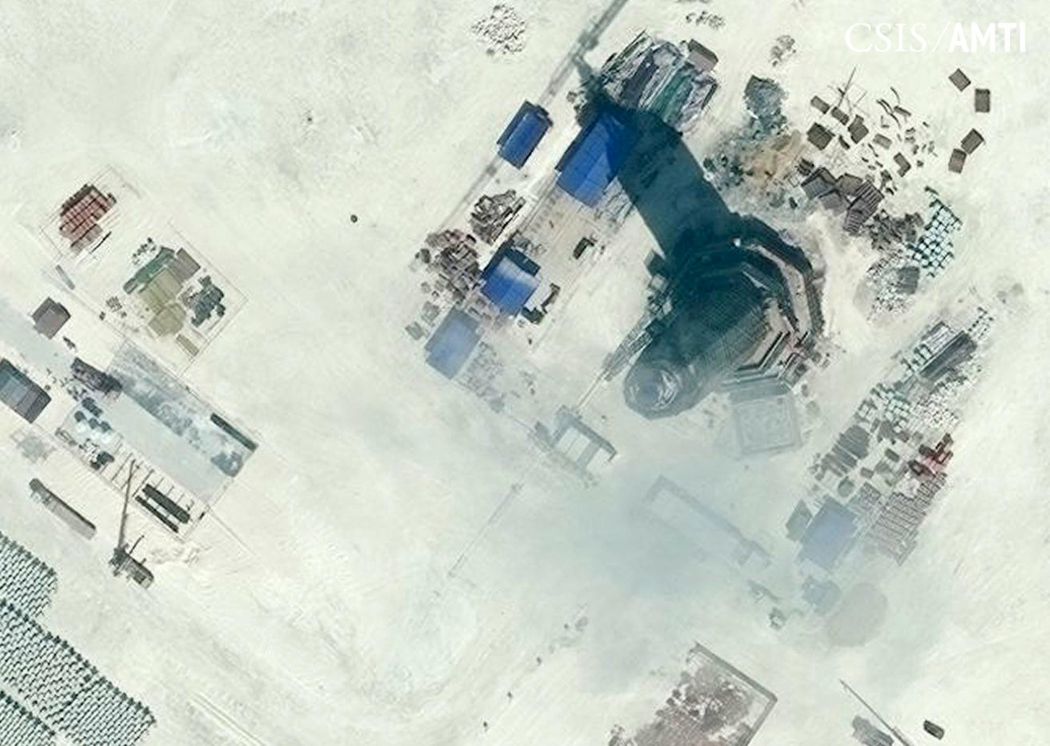Beijing will not budge on its claims of ownership over a vast tranche of the South China Sea, a top official insisted Tuesday, as a key annual meeting with the US ended with no movement on the issue.
During a two-day confab in the Chinese capital, US Secretary of State John Kerry urged China to settle its territorial rows peacefully and based on the “rule of law”.

But Beijing’s top diplomat Yang Jiechi said the US should butt out of disputes that were a long way from its shores, including an international arbitration case brought by the Philippines.
China’s stance on the case is “in line with international law”, Yang said, insisting that Beijing’s position “has not and will not change”.
The case, he said, should be settled directly between the parties involved and called on Washington to “honour its promise of not taking a position in territorial disputes”.
The South China Sea had been China’s territory since ancient times and China had every right to uphold its territorial sovereignty and lawful and legitimate maritime entitlements, Yang said.
China claims nearly all of the strategically vital sea despite competing claims by several of its Southeast Asian neighbours, and has rapidly built artificial islands suitable for military use.
Washington has responded by sending warships close to Chinese-claimed reefs, angering Beijing.

The sour ending to the annual Strategic and Economic Dialogue came despite efforts by both sides to smooth out the differences dividing the world’s top two economies.
Speaking to reporters, the two sides seemed to talk past each other on the thorny question of how to settle a conflict in the region kicked off by the Chinese construction.
Both called for peaceful settlement of the issue and pledged to support freedom of navigation through the region’s airspace and waters, but their remarks suggested very different visions for achieving those goals.
The US will continue its “fundamental support for negotiations and a peaceful resolution based on the rule of law”, Kerry said.
The Philippines, Brunei, Malaysia and Vietnam have competing claims in the South China Sea, which encompasses vital global shipping routes and is believed to have significant oil and gas deposits.
Manila accuses China of effectively taking control of the Scarborough Shoal in 2012 and has brought a case against Beijing to the Permanent Court of Arbitration at The Hague. China has shunned the proceedings and says it will not recognise any ruling.
‘Growing restrictions’
The meeting was also overshadowed by US views on an unfavourable business climate, steel overcapacity, and a restricted environment for foreign non-governmental organisations.
On Monday US Treasury Secretary Jacob Lew said Chinese oversupply of steel was “damaging and distorting global markets”, joining a chorus of criticism that blames Beijing for plant closures and job losses in the industry worldwide.
Washington also shared its concerns that a new law would hamper the ability of a wide range of American groups to operate in China, Kerry said, and over the “growing restrictions of freedom of expression and religion” in China, which has seen a crackdown on human rights lawyers and tightening controls on media.

But President Xi Jinping assured him that China “intends to remain open” and does not believe the restrictive law will impair its ability to do so, Kerry said.
A US official said the Americans brought up the law repeatedly during intense talks and considered it a major sticking point between the countries.
Foreign businesses also feel that the environment in China has become increasingly hostile, Lew said at an earlier meeting of CEOs on the sidelines of the dialogue.
But in closing statements top ministers from both countries stressed areas of agreement, and affirmed support for the denuclearisation of North Korea, cooperation on global health and ocean conservation, and joint efforts to combat bribery.
China and the US must “shelve” their differences and respect each others core interests, President Xi said in a top-level meeting that followed the dialogue.
